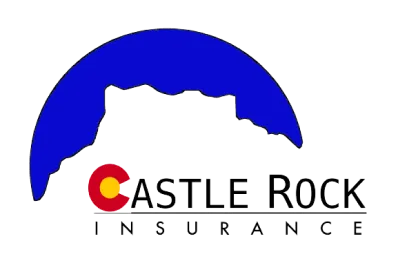
Why Uninsured Motorist Insurance Is Crucial for Colorado Drivers
Uninsured motorists are a significant concern for drivers in Colorado. As of 2019, approximately 16% of motorists remain uninsured, a figure well above the national
Castle Rock Insurance is an independent brokerage with access to multiple carriers. Contact us today to save on auto insurance!
Auto insurance in Colorado is essential for vehicle owners, offering financial protection against damage, injury, and liability from traffic collisions. Colorado’s minimum auto insurance requirements mandate that drivers carry at least $25,000 per person and $50,000 per accident for bodily injury liability, along with $15,000 for property damage liability. The state’s unique geographical and climatic conditions, including snowy winters, mountainous terrain, and frequent hailstorms, increase driving risks, making robust auto insurance both a legal requirement and a practical necessity. Major highways like I-25 and I-70 can be particularly hazardous due to heavy traffic and unpredictable weather.
Over recent years, auto insurance rates in Colorado have risen due to several factors. The state’s population growth has led to more vehicles on the road, increasing the likelihood of accidents and prompting insurers to raise premiums. Severe weather conditions, such as hailstorms and heavy snowfalls, also contribute to vehicle damage, influencing insurance costs. Additionally, rising costs of vehicle repairs and medical care impact insurance premiums as insurers pass these expenses onto consumers. Navigating these complexities can be challenging, but working with a local Colorado-based insurance broker like Castle Rock Insurance is invaluable. They understand Colorado’s specific challenges and can provide personalized advice based on an individual’s driving habits, vehicle type, and budget to find the most comprehensive coverage at the best rate. Local brokers have relationships with multiple insurance companies, allowing them to compare rates and coverages efficiently, ensuring the best deal. Furthermore, in the event of a claim, a local broker can simplify the process, providing support and advocacy on behalf of the client. In essence, a local insurance broker serves as a guide through Colorado’s complex auto insurance landscape, helping residents navigate their coverage options to protect themselves and their investments effectively.
Auto insurance premiums in Colorado can vary widely based on numerous factors such as age, profession, vehicle type, and family composition. On average, auto insurance in Colorado costs around $1,700 per year, but individual rates can differ significantly. For instance, a middle-aged professional driver might see lower premiums due to experience, while a young college student could face higher rates due to inexperience. Similarly, families with multiple vehicles may pay more than single individuals, though factors like vehicle safety and driving records also play significant roles. These examples highlight the diversity in premium calculations based on individual circumstances.
To get the most accurate estimates for auto insurance premiums, it’s best to consult with a local insurance broker like Castle Rock Insurance. They understand Colorado’s unique conditions and can provide personalized quotes that reflect your specific situation. Working with a local broker ensures you receive tailored advice, whether you’re a retiree in Boulder, a single professional in Denver, or an outdoors enthusiast in Grand Junction. By considering your driving habits, vehicle type, and other personal factors, Castle Rock Insurance can help you find the best coverage at the most competitive rates.
To save on auto insurance in Colorado, take advantage of several discounts available through independent brokers like Castle Rock Insurance. Bundle discounts offer savings when you combine multiple policies, such as auto and home insurance. Paid-in-full discounts can reduce costs when you pay your premium upfront. Installing anti-theft devices can qualify you for anti-theft discounts, and having multiple vehicles in one household can earn you multi-vehicle discounts. Additionally, a stellar driving record, certain age brackets, and other low-risk criteria can further lower your rates.
By working with an independent broker, you can leverage their extensive network of insurance providers to find the best deals tailored to your unique circumstances. This personalized approach ensures that you get affordable auto insurance that meets your specific needs, helping you save money while staying well-protected.

Uninsured motorists are a significant concern for drivers in Colorado. As of 2019, approximately 16% of motorists remain uninsured, a figure well above the national

Adams County, located just north of Denver, is one of Colorado’s most diverse and rapidly growing regions. Known for its vibrant communities, excellent schools, and

Colorado’s classic car show scene is a vibrant tapestry of automotive history and culture, attracting enthusiasts from far and wide to indulge in the beauty


